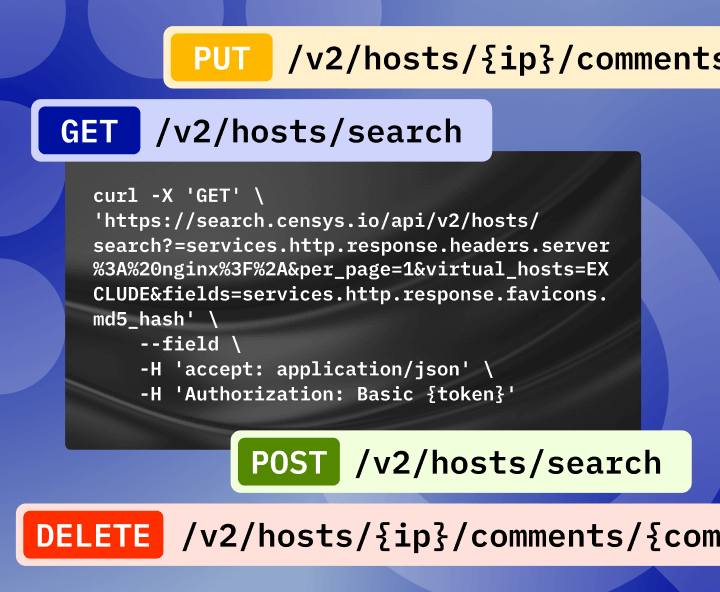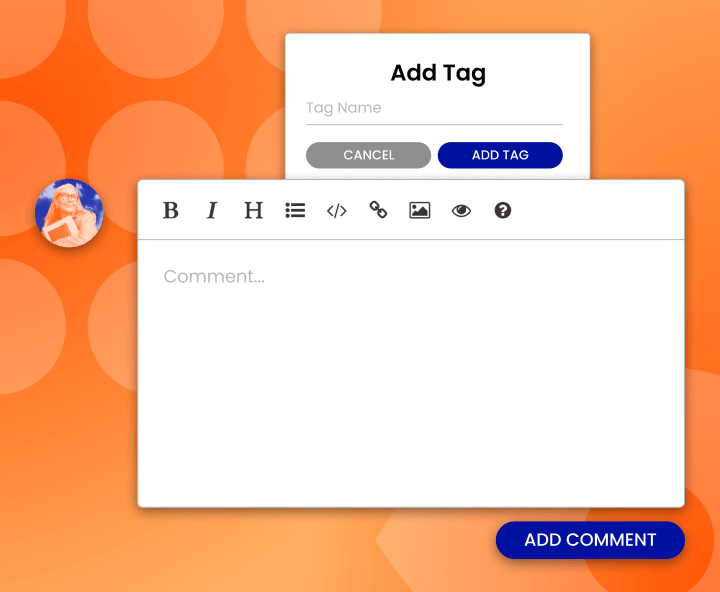The Top 5 Benefits of More Queries and Results
We’re glad to have you with us as we continue our Unleash the Power of Censys Search blog series! In this weekly series, we talk about ways that users can get the most out of our Censys Search tool, which provides access to the most comprehensive, accurate, and up-to-date view of global internet infrastructure available.
If you’ve been following along, you may have seen our recent posts about ways to use Censys Search features like matched services, tags and comments, and custom field selection. (If you haven’t seen these posts yet, go ahead and give them a read after you’re done here!)
In this post, we’re turning our attention to the benefits of more Censys Search queries and results pages. More queries and results pages make it possible for users to glean more insights from the vast array of current and historical data about hosts and certificates available in Censys Search. Users can increase their access to queries and results pages with upgraded Censys Search packages, which include our new Solo and Teams offerings.
Running Queries & Reviewing Results in Censys Search
To access all of the host and certificate data that Censys’ proprietary internet scanning engine collects, users submit queries. Queries are requests for data that are entered into the Censys Search search bar. Queries are written in a unique but straightforward syntax that helps the Censys Search tool accurately retrieve requested data. For a primer on how these queries function and to learn more about how to write them, check out our Censys Search Language Quick Start Guide and our list of Top Queries. In the support document below, you can see an example of a Censys Search that uses Boolean logic to search for hosts in multiple geographic locations.

These are just some of the many Censys Search query examples you can find in our support resources.
Tip: Looking for a shortcut to queries? Save time with our AI-powered CensysGPT tool, which translates natural language inputs into Censys queries.

After a query is submitted, all of the returns that match the query will display. Typically, a query will generate enough matching returns to span many results pages. After all, the Censys dataset is massive, so unless you have a hyper-targeted query (which, sometimes you may) you’ll likely receive pages of matching results to explore. Though you can apply filters within Censys Search to refine your results, you may not always want to achieve a narrow scope. Which brings us to increasing access to queries and results.
What Does It Mean to Increase Access?
Users of the Censys Search Community version have access to 250 queries per month and 10 pages of search results per query. This Community version is a great choice for individuals who are just getting started with Censys Search or who only need to run searches on an intermittent basis, and who aren’t conducting in-depth investigations or incident response work.
However, many security practitioners, threat hunters, and researchers find that they have a bigger appetite for Censys data than what the Community version is designed to support, and could significantly benefit from more queries and more results pages. Moving beyond the Community version to an upgraded package, like Censys Search Solo, Censys Search Teams, or one of our enterprise packages, expands access to queries and results pages. You can see a comparison of these options in the breakout below:
- Censys Search Community: 250 monthly queries; 10 pages of results
- Censys Search Solo: 500 monthly queries; 25 pages of results
- Censys Search Teams: 3750 monthly queries; 50 pages of results
For a complete side-by-side comparison of offerings, visit our plans page here.
Let’s dig into why a user might want access to more queries and results pages.
5 Ways to Benefit from More Queries & Results
1.Conduct More Thorough Threat Investigations
Threat investigations can be unpredictable. If you’re a threat hunter, you know all too well that every threat investigation is unique, and that there’s no anticipating how long it might take to arrive at a finding that’s critically understood. A single threat investigation could easily merit dozens, if not hundreds, of queries as you pivot on evidence, explore new leads, analyze historical changes over time, and validate your findings. It’s also difficult to predict how many potential threats you may need to investigate within a given period of time. The last thing you want is to run up against query limitations when you’re in the middle of a critical threat hunt.
(Interested in learning more about using Censys Search for threat investigations? Check out our new ebook: Threat Hunting 101: Your Guide to Outsmarting Adversaries.)
2. Take a More Proactive Security Posture
More queries can create more opportunities to be proactive. With a higher number of monthly queries at your disposal, you and your team may gain the ability to go on the offensive to look for indicators of compromise or monitor assets of interest, without worrying about running out of queries for routine or reactive security needs. More queries make it possible to explore more broadly and pivot more freely as you navigate the Censys dataset in a more proactive fashion.
3. Maximize Your API Use
Those using the Censys API to feed Censys data into other security systems on a recurring basis may run up against the need for more queries. Let’s say you need to import data about a certain group of hosts into your SIEM solution on a daily basis – that’s 30 queries a month for a single search. You may have many, many searches you’d like to run on a daily basis that could result in hundreds or even thousands of monthly queries. With access to more monthly queries, you can maximize your use of the Censys API to get all of the up-to-date data into your various tools as needed, and further improve your security posture in the process.
4. Get the Big Picture
Perhaps you’re running a search that’s a little more broad in scope, because you’re just just starting a threat investigation and you’re not exactly sure what you’re looking for. Or, let’s say you have a query that is intentionally broad because you want to look at all of a certain type of host in the United States. We know that broad queries are more likely to generate more pages of search results, and if you’re looking for a macro view of all returns (you want to observe all of the “XYZ hosts” in the U.S. in aggregate) you’re going to want access to more results pages. With increased access, you can gain a more complete picture of results to better inform your investigation or research.
5. Save for Today & Plan for Tomorrow
If you have multiple folks on your security or research team that are actively using Censys Search, there are economies of scale to consider when thinking about increasing your access to queries and results. For example, our Teams package supports five users and includes three times as many monthly queries as compared to the monthly queries that could be accumulated from five individual Community accounts. There’s also future needs to consider. As your team’s Censys Search users and use cases grow, the right query and results page access can set your team up for success going forward.
Let Queries & Results Guide Your Curiosity
Censys Search provides access to an expansive collection of internet data that’s rich with context and insight. Ensure you and your team are empowered to use it! Increased access to queries and results pages can unlock a number of advantages for Censys Search users who have outgrown the core offerings of our Community version. Maximize your use of Censys Search when you choose a plan with query and results page offerings that are matched to your needs.
You can learn more about how to increase your access to queries and results pages here.
Interested in running a query, but aren’t sure where to start? Head on over to our AI-powered CensysGPT tool.
A Reminder to Censys Search Community Users
We recently shared that we will be making changes to our current Censys Search Community version. Namely, we will be discontinuing API access beyond 60 days. This will apply to both new Community Users and current Community Users. This means that Community Users who created their Censys Search Community accounts on or before December 6, 2023 – the date our self-service packages were launched – will no longer have API access after February 5, 2024.
Any Community User who created a Community account after December 6, 2023 will have API access for 60 days after their specific date of enrollment.
You can read more about these changes in our recent blog.
As always, we appreciate your understanding and cooperation as we strive to maintain a high standard of service!
To learn more about how to upgrade your Censys Search account, please visit our pricing page.
Special Offer: Receive a 10% discount on your annual subscription to Censys Search Solo or Censys Search Teams! For your convenience, our code ANNUALDISCOUNT will auto populate when you select an annual subscription at checkout.



